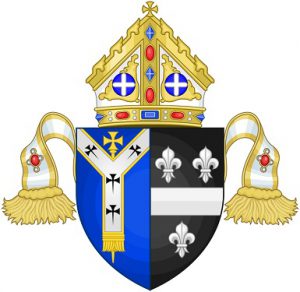
Defending the free market and advocating for ever-greater access to capital is of paramount importance during uneven economic patches. That is how Christians should greet comments from Justin Welby, the archbishop of Canterbury, who recently said that the economy is “broken.”
The archbishop cited familiar economic data of unequal economic growth, youth hopelessness, and questions about wage stagnation. Many of these are part of a forthcoming report from the IPPR’s Commission on Economic Justice, of which he is a member.
But if the economy is broken, then Welby can easily find the tools to fix it by drawing upon his successful business career, writes Rev. Edward Carter in a new essay for Religion & Liberty Transatlantic. Carter, who is Canon Theologian at the Church of England’s Chelmsford Cathdedral, believes that the archbishop has gleaned clear-eyed insights from his life in enterprise.
The archbishop, he writes, believes in an expansive and inclusive free market. Canon Carter writes that Welby has even brought that entrepreneurial originality to the ossified world of church administration:
His own leadership style embraces risk-taking and, in [Welby’s book] Dethroning Mammon, he takes care to expose the failings of a communist or socialist system. Looking back through history at such societies, he argues: “All of them demonstrate that efforts to impose equality always fail.” In support of free markets, he then goes on to observe: “The greatest expansion of riches, and reduction in poverty, famine and general want, has been under the marker economies of the post-Second World War era.”
Those statements sound positively Leonine.
In other contexts, the archbishop has called attempts to pin the blame for the financial downfall solely on individual CEOs “lynch mobbish.”
One is less encouraged by an op-ed authored by Abp. Welby for the Financial Times, in which he called for “a fairer tax system where those who benefit most from the economy – whether through income, wealth or investment – pay their fair share.” The top 10 percent of British income earners pay nearly two-thirds (59 percent) of all UK taxes, according to an analysis from the Telegraph. The top one percent alone shoulder 27 percent of the tax burden. Meanwhile, 43.8 percent of all Britons pay no income tax at all, according to data from the Institute for Fiscal Studies.
The Religion & Liberty Transatlantic essay deals with the tension within Archbishop Welby’s views – alternately praising the nationalizing 1940s and the Thatcherite 1980s – by finding a constant thread in his thought: his belief that no one should be excluded from capitalism.
Experience reveals that those hoping to broaden prosperity must contend with such foes as cronyism, anemic investment often caused by confiscatory tax rates, a minimum wage high enough that it prices unskilled labor out of the market, and a too-generous welfare state that bids the ambitious be idle.
“For human lives to flourish through enterprise, there needs also to be a recognition of God’s gracious and abundant generosity and a God-given desire to embrace the possibility of participating in that abundance,” Rev. Carter writes. “The task of explaining the solid theological basis for free enterprise has never been more important. … The world, especially the world’s poor and excluded, sorely needs him to make such a case.”
You can read Rev. Edward Carter’s full essay here.
(Photo credit: P-JR. CC BY-SA 3.0.)

